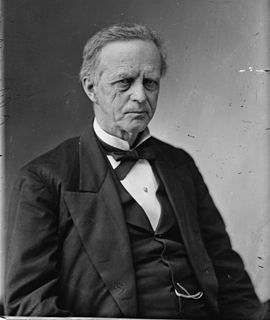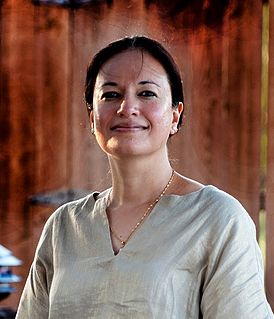A Quote by Paul Watford
The Court has long held that the Constitution protects certain fundamental rights that are not explicitly enumerated in the Constitution's text, while at the same time emphasizing that courts must proceed with great caution in recognizing such rights.
Related Quotes
The complete independence of the courts of justice is peculiarly essential in a limited Constitution. By a limited Constitution, I understand one which contains certain specified exceptions to the legislative authority. Limitations of this kind can be preserved in practice no other way than through the medium of courts of justice, whose duty it must be to declare all acts contrary to the manifest tenor of the Constitution void. Without this, all the reservations of particular rights or privileges would amount to nothing.
The very purpose of the Bill of Rights and the Constitution is to protect minority rights against majority voters. Every court decision that strikes down discriminatory legislation, including past Supreme Court decisions, affirming the fundamental rights to marry the person you love, overrules a majority decision.
I often wonder whether we do not rest our hopes too much upon constitutions, upon law and upon courts. These are false hopes, believe me, these are false hopes. Liberty lies in the hearts of men and women; when it dies there, no constitution, no law, no court can save it; no constitution, no law, no court can even do much to help it. While it lies there it needs no constitution, no law, no courts to save it.
the right to marry whoever one wishes is an elementary human right ... Even political rights, like the right to vote, and nearly all other rights enumerated in the Constitution, are secondary to the inalienable human rights to 'life, liberty and the pursuit of happiness' proclaimed in the Declaration of Independence; and to this category the right to home and marriage unquestionably belongs.
I believe all Americans are born with certain inalienable rights. As a child of God, I believe my rights are not derived from the constitution. My rights are not derived from any government. My rights are not denied by any majority. My rights are because I exist. They were given to me and each of my fellow citizens by our creator, and they represent the essence of human dignity.
Democracy is not freedom. Democracy is two wolves and a lamb voting on what to eat for lunch. Freedom comes from the recognition of certain rights which may not be taken, not even by a 99% vote. Those rights are spelled out in the Bill of Rights and in our California Constitution. Voters and politicians alike would do well to take a look at the rights we each hold, which must never be chipped away by the whim of the majority.
There is a lot of talk in conservative circles about judicial modesty and deferring to the political branches. That view of judging often overlooks the important role that courts have in protecting people's rights. But if there was ever a time to defer, it is when Congress is protecting voting rights in the exact way the Constitution directs it to.
If they are incorporated into the Constitution, independent tribunals of justice will consider themselves in a peculiar manner the guardians of those rights; they will be an impenetrable bulwark against every assumption of power in the legislative or executive; they will be naturally led to resist every encroachment upon rights expressly stipulated for in the Constitution by the declaration of rights.
So what's the difference between republican and democratic forms of government? John Adams captured the essence of the difference when he said, 'You have rights antecedent to all earthly governments; rights that cannot be repealed or restrained by human laws; rights derived from the Great Legislator of the Universe.' Nothing in our Constitution suggests that government is a grantor of rights. Instead, government is a protector of rights.
































